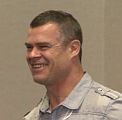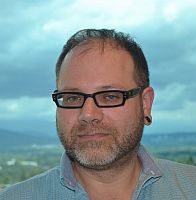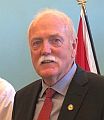BRING THE SCIENCE INTO LOCAL GOVERNMENT: “Hans Schreier of UBC ignited my passion in the mid-1990s when the District worked with UBC on applied research. What we learned was transformational. We then turned our minds to the role of green infrastructure in protecting streams from urban impacts,” stated Richard Boase, career environmental champion within local government in the Metro Vancouver region

“The UBC research team led by Hans Schreier and Ken Hall dated all these sediment cores from Burnaby Lake and extracted sediments from certain years. They identified, for example, when lead stopped being used in gasoline. They also showed how pollutants in road runoff work their way through the drainage networks and into streams where they deposit. It was an inspiring moment for me. I saw a path forward for making a difference. That was the moment when I realized why we must do a better job of erosion and sediment control,” stated Richard Boase.










